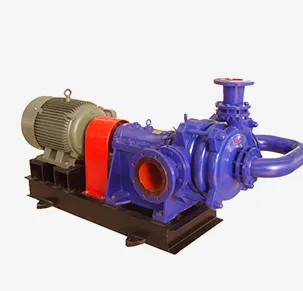Tamil
- Afrikaans
- Albanian
- Amharic
- Arabic
- Armenian
- Azerbaijani
- Basque
- Belarusian
- Bengali
- Bosnian
- Bulgarian
- Catalan
- Cebuano
- Corsican
- Croatian
- Czech
- Danish
- Dutch
- English
- Esperanto
- Estonian
- Finnish
- French
- Frisian
- Galician
- Georgian
- German
- Greek
- Gujarati
- Haitian Creole
- hausa
- hawaiian
- Hebrew
- Hindi
- Miao
- Hungarian
- Icelandic
- igbo
- Indonesian
- irish
- Italian
- Japanese
- Javanese
- Kannada
- kazakh
- Khmer
- Rwandese
- Korean
- Kurdish
- Kyrgyz
- Lao
- Latin
- Latvian
- Lithuanian
- Luxembourgish
- Macedonian
- Malgashi
- Malay
- Malayalam
- Maltese
- Maori
- Marathi
- Mongolian
- Myanmar
- Nepali
- Norwegian
- Norwegian
- Occitan
- Pashto
- Persian
- Polish
- Portuguese
- Punjabi
- Romanian
- Russian
- Samoan
- Scottish Gaelic
- Serbian
- Sesotho
- Shona
- Sindhi
- Sinhala
- Slovak
- Slovenian
- Somali
- Spanish
- Sundanese
- Swahili
- Swedish
- Tagalog
- Tajik
- Tamil
- Tatar
- Telugu
- Thai
- Turkish
- Turkmen
- Ukrainian
- Urdu
- Uighur
- Uzbek
- Vietnamese
- Welsh
- Bantu
- Yiddish
- Yoruba
- Zulu
Telephone: +86 13120555503
Email: frank@cypump.com
நவ் . 12, 2024 13:11 Back to list
sewage pumps/residential
Understanding Residential Sewage Pumps A Comprehensive Guide
Sewage pumps play a vital role in residential plumbing systems, particularly in homes that are situated below the level of the municipal sewer line. These pumps are essential for transporting wastewater and sewage from bathrooms, kitchens, and laundry rooms to the main sewer line, ensuring that your home’s plumbing system operates efficiently and effectively. In this article, we will explore the various types of residential sewage pumps, their features, benefits, and maintenance tips to help you make an informed decision when selecting a sewage pump for your home.
Types of Sewage Pumps
There are generally two main types of sewage pumps used in residential applications submersible pumps and pedestal pumps.
1. Submersible Pumps These pumps are installed below the wastewater level, typically in a sump pit. They are designed to work underwater, which makes them efficient and quiet. Submersible pumps are ideal for homes where space is limited, and they can handle a wide range of solids and waste materials.
2. Pedestal Pumps As the name suggests, these pumps are mounted above the sump basin. They work by drawing wastewater up to the discharge line. While pedestal pumps are generally easier to maintain and service due to their above-ground installation, they tend to be noisier than submersible models.
Key Features to Consider
When selecting a sewage pump for your home, several features should be taken into account
- Horsepower The power of the pump plays a crucial role in its ability to transport sewage efficiently. Homeowners typically choose pumps ranging from 0.5 to 3 horsepower, depending on the volume of waste they expect to handle.
- Flow Rate Measured in gallons per minute (GPM), the flow rate indicates how quickly the pump can move sewage. It's important to select a pump that can handle the expected volume of wastewater.
- Solid Handling Capabilities Residential sewage pumps are designed to handle solid waste, but not all pumps can manage the same size of solids. Most pumps can handle solids between 2 inches and 3 inches in diameter.
- Durability Look for pumps made from high-quality materials such as cast iron or thermoplastic for better durability and longevity. Pumps with corrosion-resistant coatings are also ideal, especially if you live in an area with hard water.
sewage pumps/residential

Benefits of Sewage Pumps
Investing in a sewage pump has numerous advantages for homeowners
- Prevention of Backups Sewage pumps help prevent unpleasant sewage backups by ensuring that wastewater is efficiently transported away from your home.
- Increased Property Value A well-functioning sewage system is an attractive feature for potential homebuyers, which can contribute to the overall value of your property.
- Energy Efficiency Modern sewage pumps are designed to be energy-efficient, reducing your electricity bill while still providing reliable service.
Maintenance Tips
To ensure your sewage pump functions optimally, regular maintenance is essential
- Check for Blockages Periodically inspect the pump and the sump pit for any debris or blockages that could impair its function.
- Test the Pump Run your pump regularly to make sure it activates and deactivates as it should.
- Schedule Professional Inspections Consider having your pump serviced by a professional at least once a year to catch any potential issues early.
In conclusion, residential sewage pumps are crucial for maintaining a functional plumbing system in homes. By understanding the different types, features, benefits, and maintenance needs of these pumps, homeowners can make informed choices for their sewage management needs. A well-selected and maintained sewage pump can ensure that your home remains free of sewage problems for years to come.
-
High-Performance Air Pumps for Sand & Gravel | Efficient Transport
NewsAug.03,2025
-
ISG Series Vertical Pipeline Pump - Chi Yuan Pumps Co., LTD.|Energy Efficiency, Corrosion Resistance
NewsAug.03,2025
-
ISG Series Pipeline Pump - Chi Yuan Pumps | Energy Efficiency&Compact Design
NewsAug.03,2025
-
ISG Series Vertical Pipeline Pump - Chi Yuan Pumps Co., LTD.|High Efficiency, Low Noise, Durable
NewsAug.02,2025
-
ISG Series Vertical Pipeline Pump - Chi Yuan Pumps | High Efficiency, Low Noise
NewsAug.02,2025
-
ISG Series Vertical Pipeline Pump- Chi Yuan Pumps Co., LTD.|High Efficiency&Compact Design
NewsAug.02,2025










